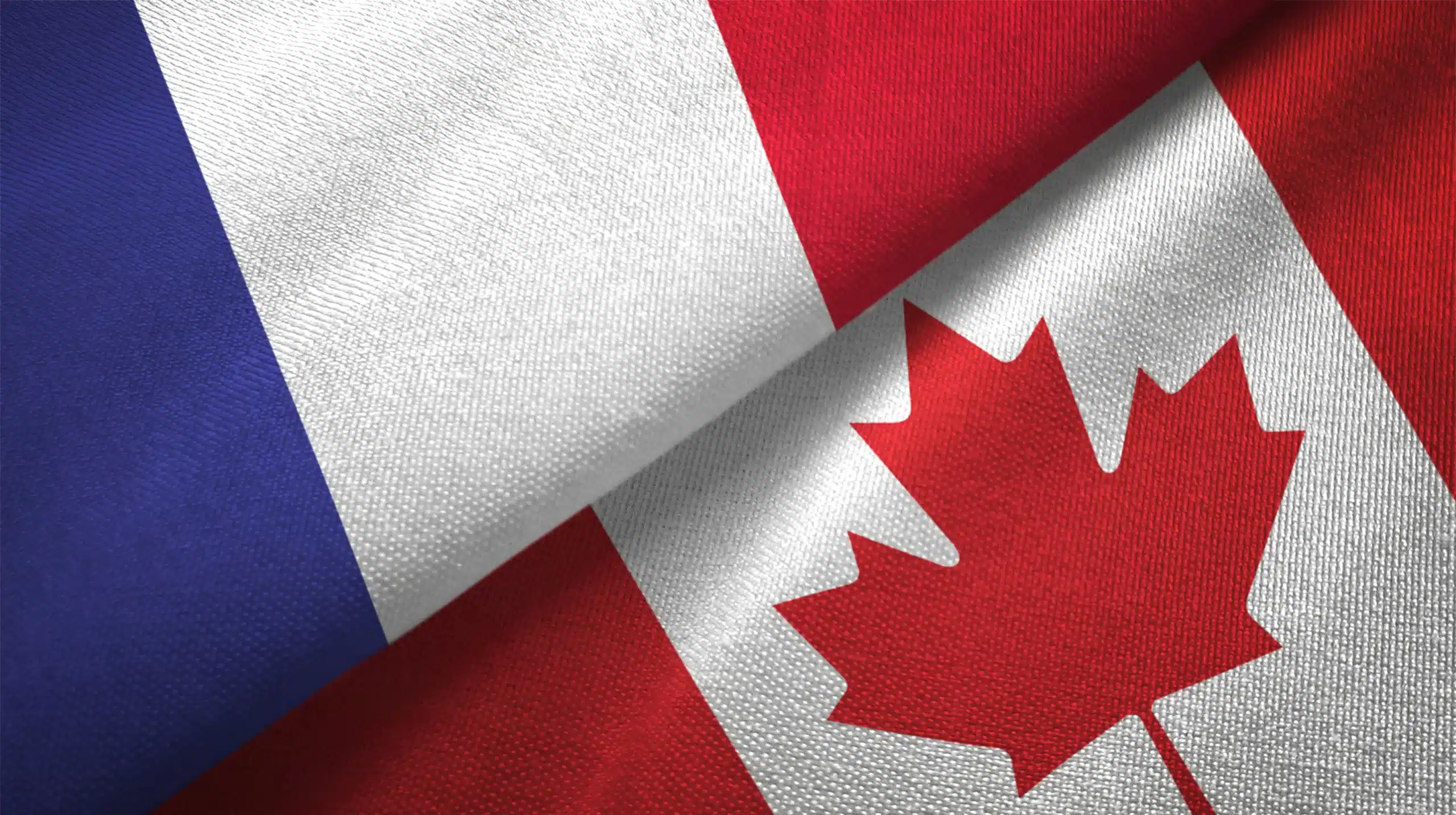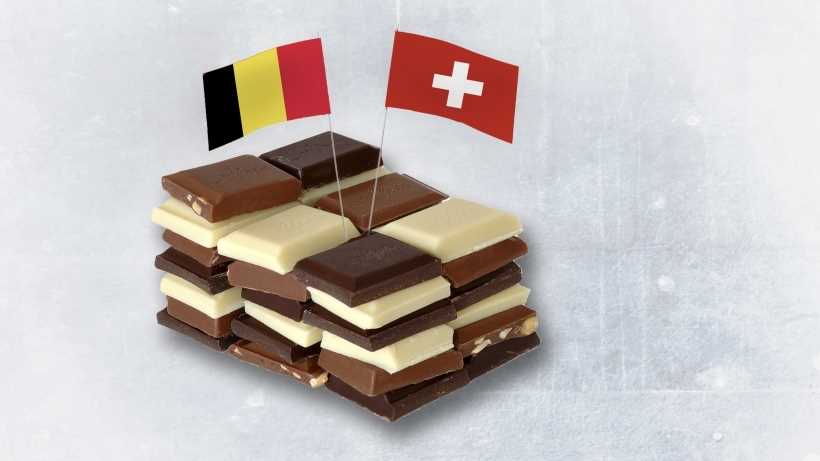
Discover the diversity of the French language! From European to Caribbean variations, explore how local cultures shape this language.
How French sounds different across continents!
When most people think of the French language, they probably picture Parisians chatting over coffee with the Eiffel Tower in the background, or the melodic tones of French film dialogues. But did you know that, like Spanish, French isn’t a “one-size-fits-all” language? Spoken across five continents, French has transformed into a wide range of dialects and accents, each with quirks, expressions, and charm. Let’s take a world tour of French variations, from Quebec to Senegal to the Caribbean!
European French vs. Canadian French
Let’s start with the two most famous French dialects: European French (the “standard” French spoken in France) and Canadian French, particularly in Quebec.
European French is what most people think of when they imagine French: crisp pronunciation, a love for formality, and that characteristic Parisian flair. French people in France are proud of their language’s elegance and are often surprised to learn that French speakers elsewhere do things a little differently.
In Canadian French, especially in Quebec, pronunciation and vocabulary can feel like an entirely different language to someone from Paris. Quebecois French has a distinct beat, with words like “magasiner” for shopping (versus the European “faire les courses”) and “fin de semaine” instead of “week-end” (yes, even French speakers argue about English words sneaking into their language!). Canadian French also has local expressions like “c’est de valeur!” (“it’s a shame!”) and unique pronunciations that give it a unique charm.

Imagine a Parisian meeting a Quebecois. They’d probably feel like they’re playing a game of linguistic charades, guessing each other’s words. It’s this unique flavor that makes Canadian French a beloved variation of the language.
African French
African French is a vibrant and widely spoken version of French, adapted and transformed across over 20 countries in Africa. With influences from local languages and cultures, African French has evolved into a colorful array of expressions and styles.
In Senegal, for instance, people often greet each other with “ça va?” but follow it up with multiple phrases in Wolof, creating a blend of languages. In Ivory Coast, you’ll hear phrases like “y a pas drap” (“no problem”) and slang terms like “djo” for “guy.” African French tends to be more expressive, incorporating local languages, body language, and a sense of playfulness.

Fun fact: If you want to sound local, pick up on a few slang phrases and drop them into conversation. Just be ready for some laughter and maybe even a “Bravo!” from native speakers.
Haitian Creole: Spoken widely across the Caribbean
Moving across the Atlantic, French takes on a Caribbean vibe in places like Haiti and Guadeloupe. In Haiti, Haitian Creole is spoken widely alongside French. Although it has French roots, it’s a unique language of its own. Haitians blend French vocabulary with African influences, creating something that a Parisian might find delightfully puzzling. Instead of “je comprends” (“I understand”), in Haitian Creole you’d say “mwen konprann.”

French with a tropical twist: The laid-back charm of French Polynesia
In French Polynesia, the French language flows as easygoing as the islands themselves. It’s heavily influenced by Polynesian languages, creating a soft, welcoming tone. Locals might joke that the island sun makes their French a little “mellow”.
So, if you’re a French speaker from France visiting Haiti or Tahiti, be prepared to feel like a bit of a “lost tourist.” But hey, that’s half the fun!

Swiss vs Belgian French
Our tour takes us back to Europe, where Switzerland and Belgium each put their own spin on French. Swiss French speakers are known for their distinct vocabulary, especially with numbers. While France uses “soixante-dix” for seventy, Switzerland simplifies it to “septante.” The same goes for eighty and ninety, which become “huitante” and “nonante” in Swiss French. This straightforward approach can catch a French visitor off guard, but Swiss French speakers stand by their version as logical and efficient.
Belgian French also has its unique characteristics. Belgians might call the weekend “la fin de semaine” instead of “le week-end” and have their own regional slang. Belgian French has a softer tone and is often infused with a playful sense of humor, particularly in its local expressions.

Imagine ordering food in a Swiss café and feeling stumped by numbers. Suddenly, basic math feels like an adventure!
French in Southeast Asia and beyond
Finally, French has made its way into places like Vietnam and Laos. Although it’s less widely spoken today, remnants of French can still be seen in vocabulary and culture. You might find street names or dishes with French origins, a reminder of the historical connections between these countries and France.
For example, Vietnamese menus often feature “baguette” and, in some places, people say “bonjour” as a greeting. It’s a fascinating reminder of how French left its mark across the globe.
Pour conclure: The fun of French variations!
French may be a single language, but it’s spoken in countless ways across the world. From the charming differences between Quebecois and European French to the colorful, expressive African French, each variation brings its own flavor to the table. So, next time you hear someone speaking French, don’t assume it’s the “Parisian” kind. Listen closely, and you might pick up on a unique twist.
Wherever you go, there’s a version of French waiting to greet you with a friendly “bonjour” or maybe even “allô,” “salu,” or “kouman ou ye” (Haitian for “How are you?”). Embrace the diversity, and you’ll discover that French isn’t just a language; it’s a world tour of culture, history, and local flair.
Ready to dive deeper into the fascinating world of French language variations? Our team of experts is here to help! Whether you need translation services, localization expertise, or insights into regional dialects, we’ve got you covered.
References:
French Dialects & Varieties Around the World
Discovering the Varieties of French: A Linguistic Journey
French Language: 9 Different Accents from Around the World
9 French Dialects from Around the World
French Accents Around the World (Youtube)
What are the 9 Types of French Spoken Around the World?
French Speaking Countries and Varieties of the French Language
